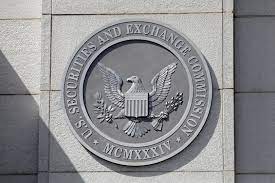WPP, the Largest Global Advertising Group, Settles FCPA Charges with SEC for $19.2 Million (Part I of III)

After a long hiatus, the SEC announced a settlement with WPP plc, the world’s largest advertising group, for FCPA violations in India, China, Brazil and Peru for $19.2 million. The SEC’s resolution charges WPP with violations of the anti-bribery, books and records and internal accounting controls provisions of the FCPA.
The Justice Department’s investigation of WPP appears to be ongoing.
WPP has dual headquarters, in London and New York City, and operates through a large network of subsidiary agencies in numerous international locations, referred to as “Networks.” In a number of cases, WPP acquired small, localized agencies in high-risk markets, such as India, China and South America that were previously owned by the local agencies’ founders. WPP’s shares (ADRs) are registered with the SEC and traded on the New York Stock Exchange.
WPP implemented an aggressive growth strategy that included acquiring a number of local agencies to build a global network of advertising capabilities, including emerging markets. In executing this aggressive growth strategy, WPP failed to ensure that its accounting controls and compliance policies were appropriately expanded to mitigate expansion of its business in these high-risk markets. Instead, as detailed in the factual statement, WPP deferred to the local CEO and founders of the acquired entities to exercise autonomy and influence over the local operations.
WPP founder Martin Sorrell was the CEP during much of the bribery conduct and aggressive acquisition activity. WPP operates in over 100 countries and currently owns or controls 2,241 companies.

In a number of cases, WPP established financial incentives for the local agency former CEOs to hit certain revenue targets in order to receive deferred payments under the acquisition agreements.
As a result, WPP failed to respond to repeated warnings of corruption or control failures at these subsidiaries. Even after receiving multiple complaints about ongoing bribery schemes, WPP failed to respond by ensuring proper investigations were conducted to determine whether the allegations raised in the complaints were true. In one stark example, WPP’s India subsidiary continued to bribe local government officials to secure government contracts despite the fact that WPP had received seven separate anonymous complaints reporting the bribery conduct.
As outlined in the SEC’s Administrative Order, WPP engaged in several bribery schemes involving subsidiaries in India, China, Brazil and Peru. These schemes will be described in greater detail in Parts II and III of this posting.
In India, WPP’s Indian subsidiary paid millions of dollars in bribes through intermediaries to Indian officials to secure government business. In China, WPP’s subsidiary paid a vendor to secure a favorable tax finding, resulting in significant tax savings to WPP’s subsidiary. In Brazil, WPP’s subsidiary made improper payments to alleged vendors to secure government contracts. And, finally, WPP’s Peruvian subsidiary acted as an intermediary for a local construction company to funnel bribes to fund a political campaign for the Mayor of Lima, Peru.
Under the SEC’s Order, WPP agreed to pay disgorgement of $10,114,424.86 plus prejudgment interest of $1,110,234.68 and a civil money penalty in the amount of $8,000,000.

In resolving the enforcement action, the SEC credited WPP’s cooperation and remediation. WPP’s cooperation included sharing facts developed in the course of its own internal investigations and forensic accounting reviews, translating key documents, and making current and former employees located abroad available for interviews.
WPP’s remediation included (i) terminating senior executives and other employees involved in the misconduct and separating from employees with supervisory responsibilities over the misconduct; (ii) strengthening and expanding its global compliance, internal investigations, risk and controls functions, including the creation of 36 new positions globally; (iii) enhancing its internal audit function; (iv) creating Network risk committees to prevent, detect, and remediate corruption risk; (v) conducting global, annual compliance risk assessments; (vi) conducting proactive reviews of remaining entities in Brazil, China, and India; (vii) streamlining businesses and back-office functions, including the merger of local networks into a smaller number; (viii) enhancing the procedures for engagement of third parties; and (ix) enhancing training provided to employees regarding anti-corruption, controls, and compliance issues.















